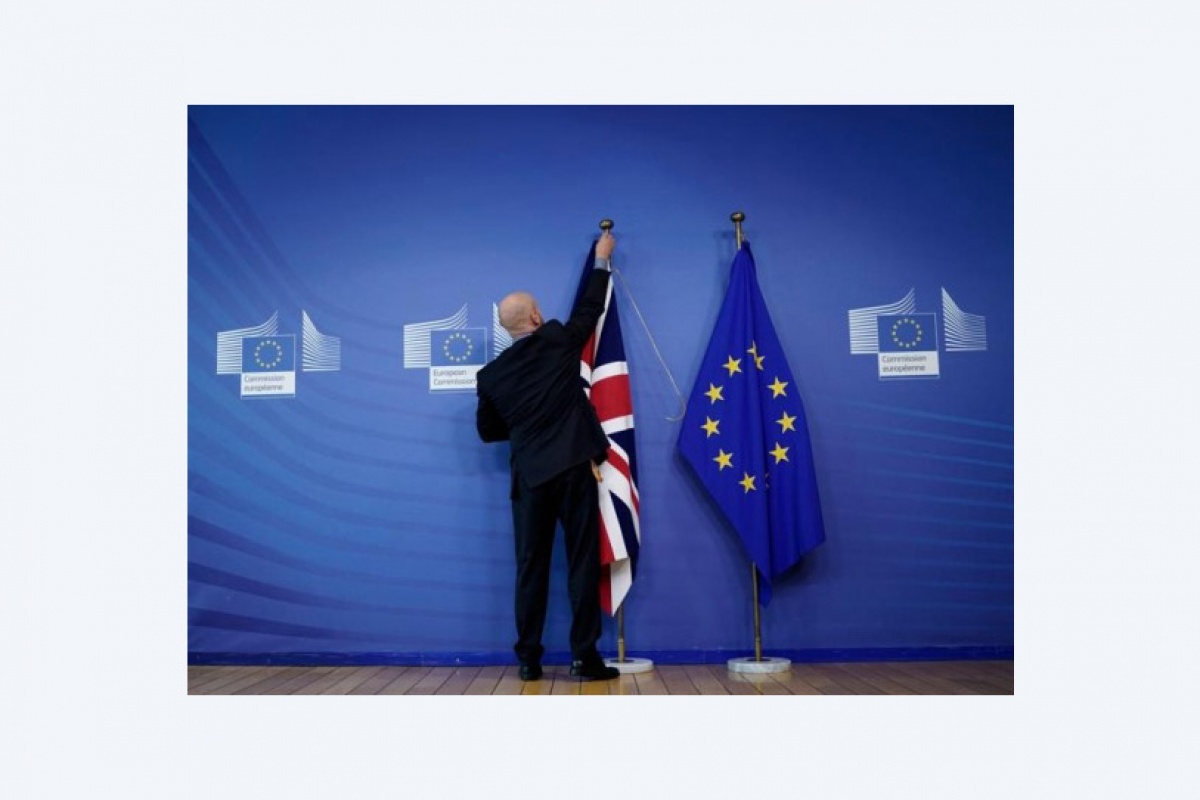
What we know so far about Brexit
It is now a fact that the United Kingdom has left the European Union since midnight on 31 January 2020, almost three and a half years after the relevant referendum in June 2016.
What we should note from the beginning, however, is that nothing will change until at least the end of 2020. Although the United Kingdom is out of the EU it will continue to fully implement the acquis communautaire by the end of the year. The UK Withdrawal Agreement provides that the next period, by the end of 2020, will be the transitional period during which negotiations between the two parties will be held on the future relationship of the EU and the United Kingdom, ie after the end of the transitional period.
The framework and principles governing the future relationship are set out in the Political Declaration accompanying the Withdrawal Agreement, which states that an ambitious, broad, deep and flexible partnership on trade and economic cooperation will be sought through, in particular , a comprehensive and balanced Free Trade Agreement, law enforcement and criminal justice, foreign policy, security and defense and broader cooperation in other fields.
Tourism is not expected to be substantially affected as there will be no entry visas for short visits (up to three months) as stated in the Political Declaration. However, the above is also true of the sterling exchange rate against the euro.
Protection of personal data is also important as there is a high level of data traffic between the EU (including of course Cyprus) and the United Kingdom. The expected partnership should, in accordance with the Political Declaration, confirm the commitment of the parties to ensure the highest protection of personal data, while respecting relevant EU rules including the decision-making procedures regarding the adequacy of the arrangements in third countries. There is good evidence that in relation to the United Kingdom there will be no problems in the handling and protection of personal data.
Concerning intellectual property, the Political Declaration states that the expected partnership should guarantee it. This should be interpreted with relative certainty that there will be no loss of protection of intellectual property rights that were or have been registered / registered before the end of the transitional period. Regulations to protect intellectual property should also exist after the end of the transitional period.
It is also stipulated that the framework governing the recognition of professional qualifications in relation to regulated qualifications should be agreed, while the key 'tool' to be used to regulate financial transactions between the parties will be the relevant frameworks of the two parties. regulate equivalence.
The United Kingdom's expected accession to the World Trade Organization's Public Procurement Agreement will ensure strong and direct participation in public procurement and there will be no significant differences with the current regime.
The Political Declaration stipulates that in the air transport sector fair competition and reciprocal, sustainable and balanced market opening should be safeguarded, while providing for an overall agreement to ensure connectivity. Consequently, no problems are expected in this area, nor in the road transport sector where similar arrangements are foreseen.
It is worth noting that in relation to medical devices and medicines (which are by-laws in the trade between Cyprus and the United Kingdom), the Withdrawal Agreement states that those in force prior to the departure of the United States will be fully applicable during the transitional period. But now the United Kingdom will not be involved in decision-making processes and the relevant EU agencies. The UK notified bodies and their certificates will continue to be recognized in the UK. not the EU and respectively the United Kingdom the relevant EU bodies and certificates issued by the end of the transitional period.
Competition is also an important aspect as any new practices in the UK that deviate from the Community Acquis will create unequal competition for both products and services and this will of course affect Cyprus as well. The Political Declaration states that the new partnership must ensure fair competition on a level playing field. The common high standards regarding public aid, competition, state-owned enterprises, employment and social protection, environmental protection, climate change and related tax issues should therefore be maintained. In this respect, relevant European and international standards will be taken into account.
The Political Declaration also states that the parties in particular should maintain a robust and integrated framework for the control of competition and state aid, which avoids unjustified distortion of trade and competition. In addition, they are committed to adhere to the principles of good governance in the field of taxation and to limit harmful tax practices but also to comply with environmental and social and employment standards at the current high levels provided for by existing standards. In this context they should be based on appropriate and relevant EU and international standards and include appropriate mechanisms to ensure effective internal enforcement, enforcement and dispute resolution.
Finally, it is stated that the Recommendation for an EU Council Decision authorizing the start of negotiations on the new EU partnership with the UK stipulates that the new partnership must include a specific chapter for small and medium-sized enterprises (SMEs). Capital should help SMEs take full advantage of the new relationship by, inter alia, increasing their awareness and enhancing their access to useful information on rules, regulations and procedures related to conducting business, including public procurement.
In conclusion, we can say that the impact for Cyprus on the UK's departure from the EU will be less than if we had a naive Brexit. This, of course, provided that the agreement on the future partnership of the parties will be completed within any transitional period, which is currently the end of 2020. It should be said, however, that the future status will not be the same favorable status. which was prevalent when the UK was a member of the EU and that makes sense, since the UK is essentially a third country.
Many issues remain unclear and will be the subject of negotiations to assemble the future relationship based on the Political Declaration. Needless to say, however, because of Cyprus' long-standing close relations with the UK, the closer the UK's future relationship with the EU is, the more it will be in our country's interest and the less the impact.
The CCCI, for its part, will continue to monitor developments and inform its members immediately so that they are properly prepared to be able to meet the challenges in the best possible way.
There will be no changes to the British Bases
With regard to the British Bases in Cyprus, the relevant Protocol to the Agreement of Ensure ensures that EU law, in the areas defined in Protocol 3 of the Cyprus Act of Accession to the EU, will continue to apply in the areas of the Bases, so that safeguarding the interests and not affecting the daily lives of citizens living, working or passing through the areas of the Base. At the same time, the Protocol extends the competence of the Republic of Cyprus to implement and enforce Union law in most of the areas covered. Consequently, with the departure of the United Kingdom from the EU, it is not expected that there will be any change in the arrangements and arrangements currently in force for the British Bases.
At the same time, the maritime transport sector will be governed by the international legal framework and the parties will have to make arrangements regarding market access. Cooperation on maritime safety should also be ensured.
What will happen to the movement of persons and students
As for the trafficking of persons, as has already been mentioned, there will be no entry visas for short visits (up to three months) at all and after the end of the transitional period. During the transitional period, what was in force before the departure of the United Kingdom, ie free movement without restrictions, would apply. This is also true of accommodation where, until the end of the transitional period, those who reside in and out of residence will retain their right of residence. This is particularly important as it concerns both Cypriots residing and working in the United Kingdom and the large number of Britons residing in Cyprus as they will not be affected by Brexit.
According to the Political Declaration, the regime applicable after the transitional period in respect of movement and residence, with the exception of short visits where no entry visas are required, must be based on the principles of non-discrimination and reciprocity. Of course here it must be said that the United Kingdom has already stated its intention to impose restrictions.
Related to mobility / residence is also the issue of EU students studying in the UK and of course Cypriot students, whose number is estimated to exceed 8000. So Cypriot students have already started or will start their studies In the United Kingdom by the end of the transitional period, they will not be affected as the situation that existed before Brexit for both (reduced) tuition and student loans will remain, until the end of their studies. Following the transitional period, and in accordance with the Political Declaration, new arrangements for entry and residence for the purposes of study, training, research and exchange of young people will be laid down in the negotiations.
* Deputy Secretary General of CCCI.





